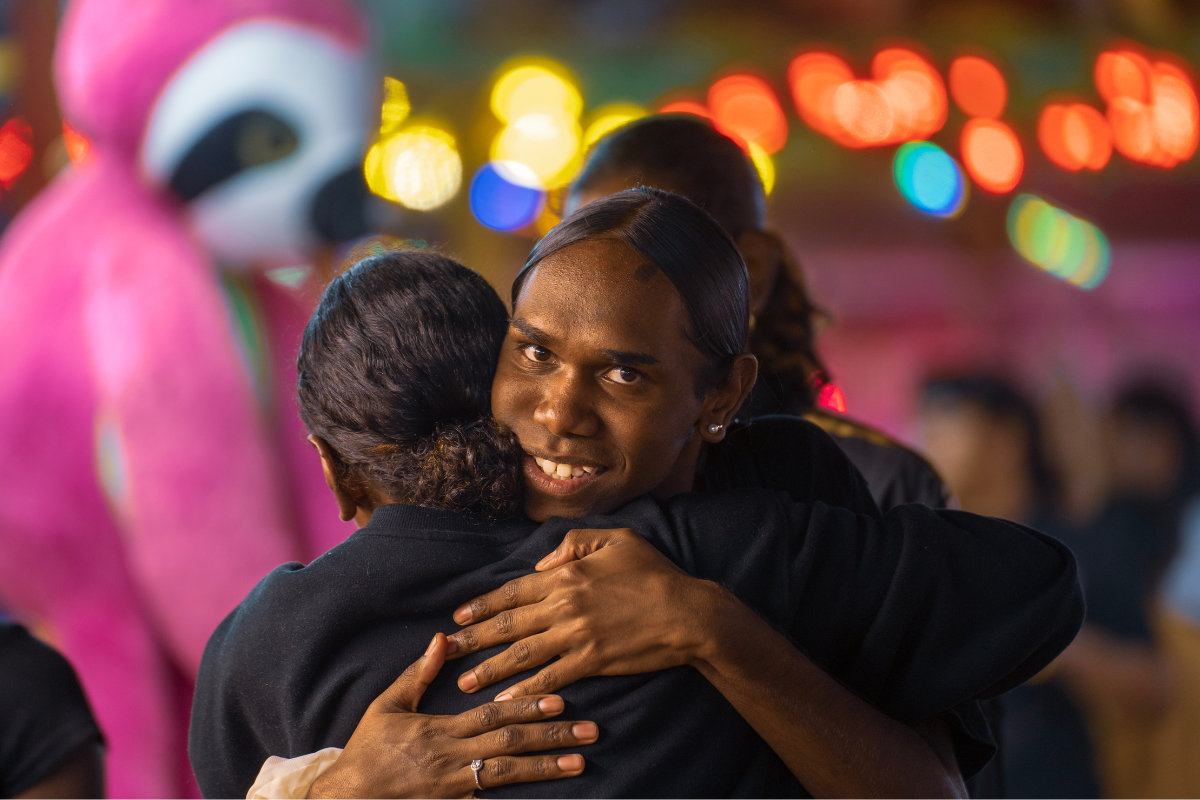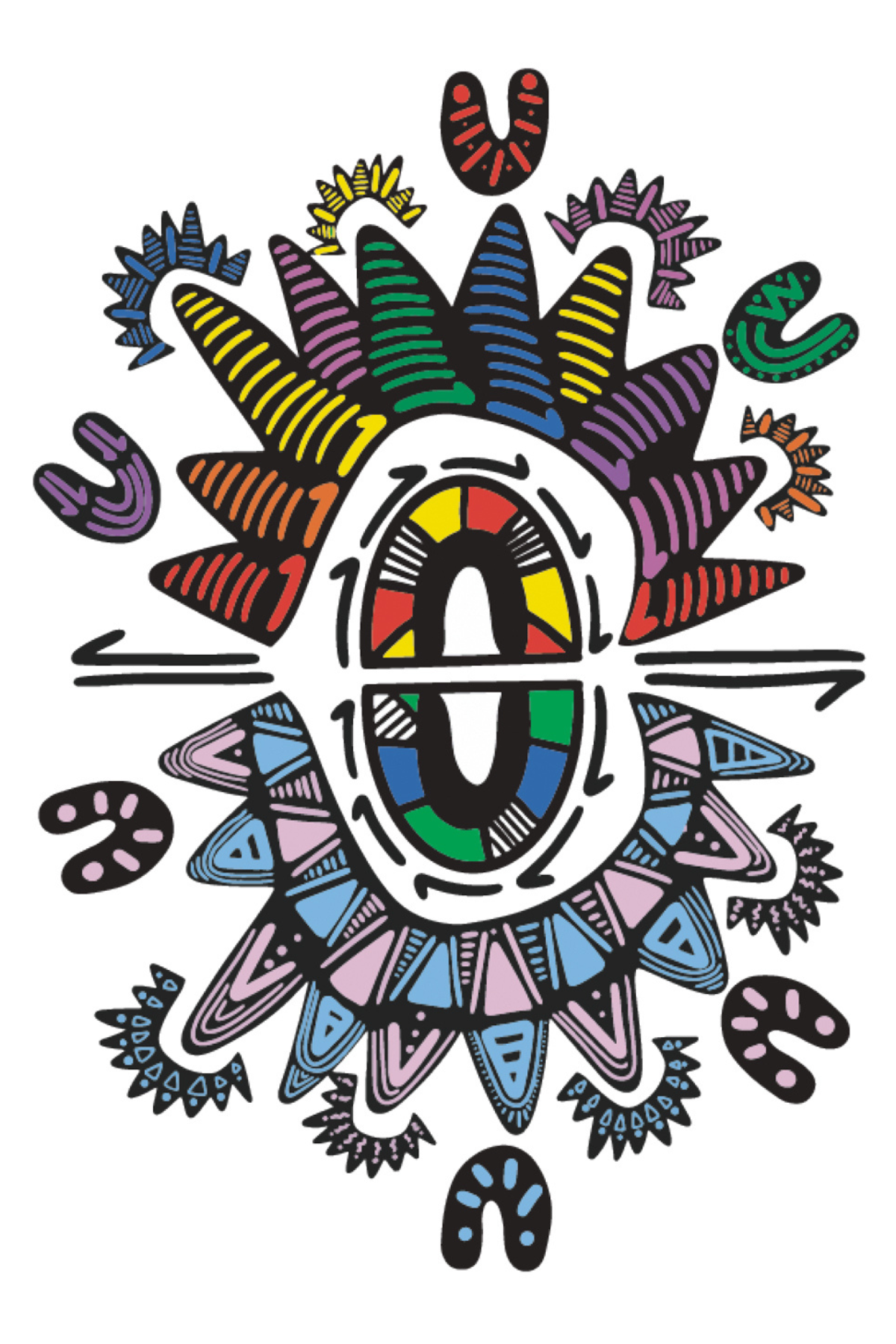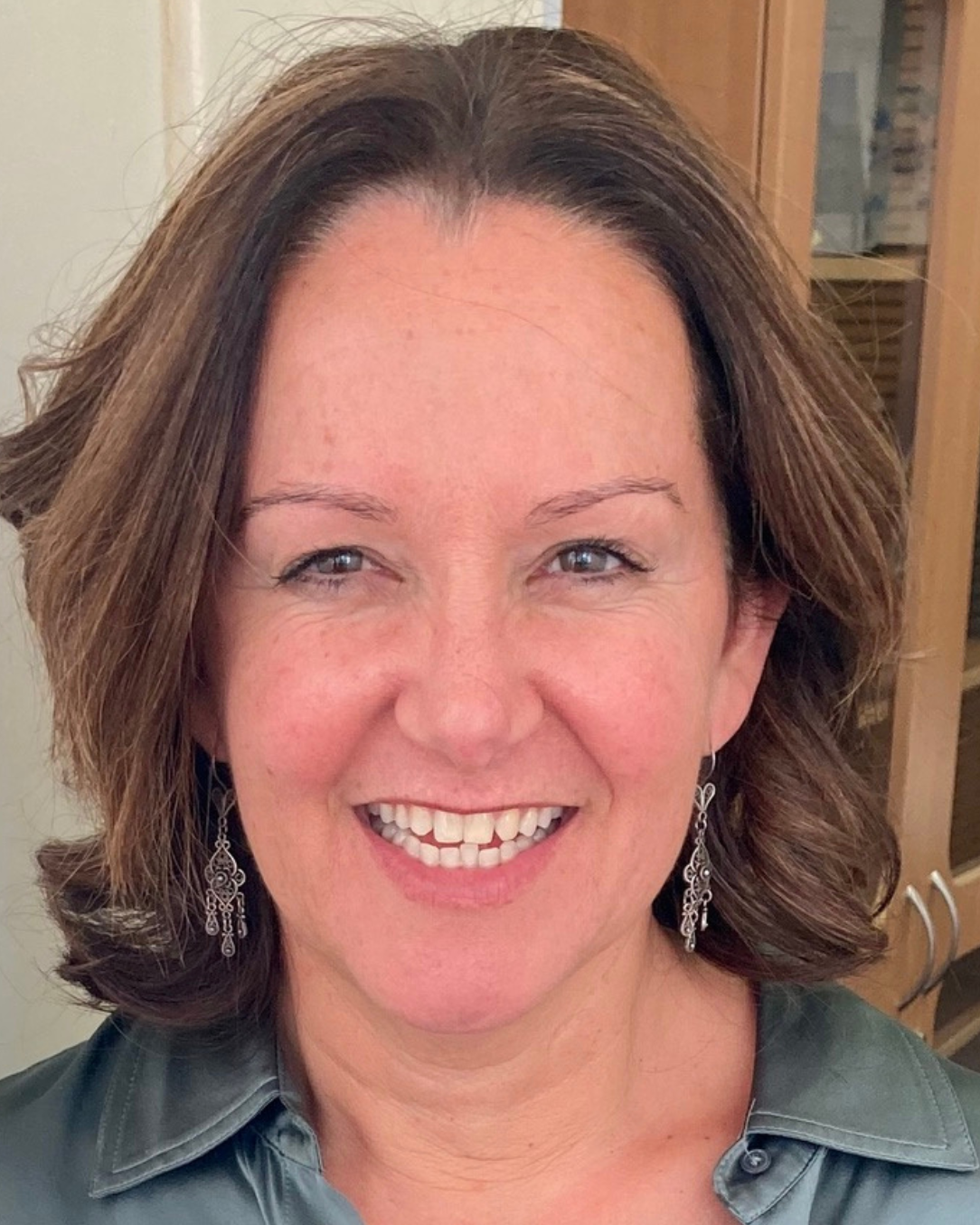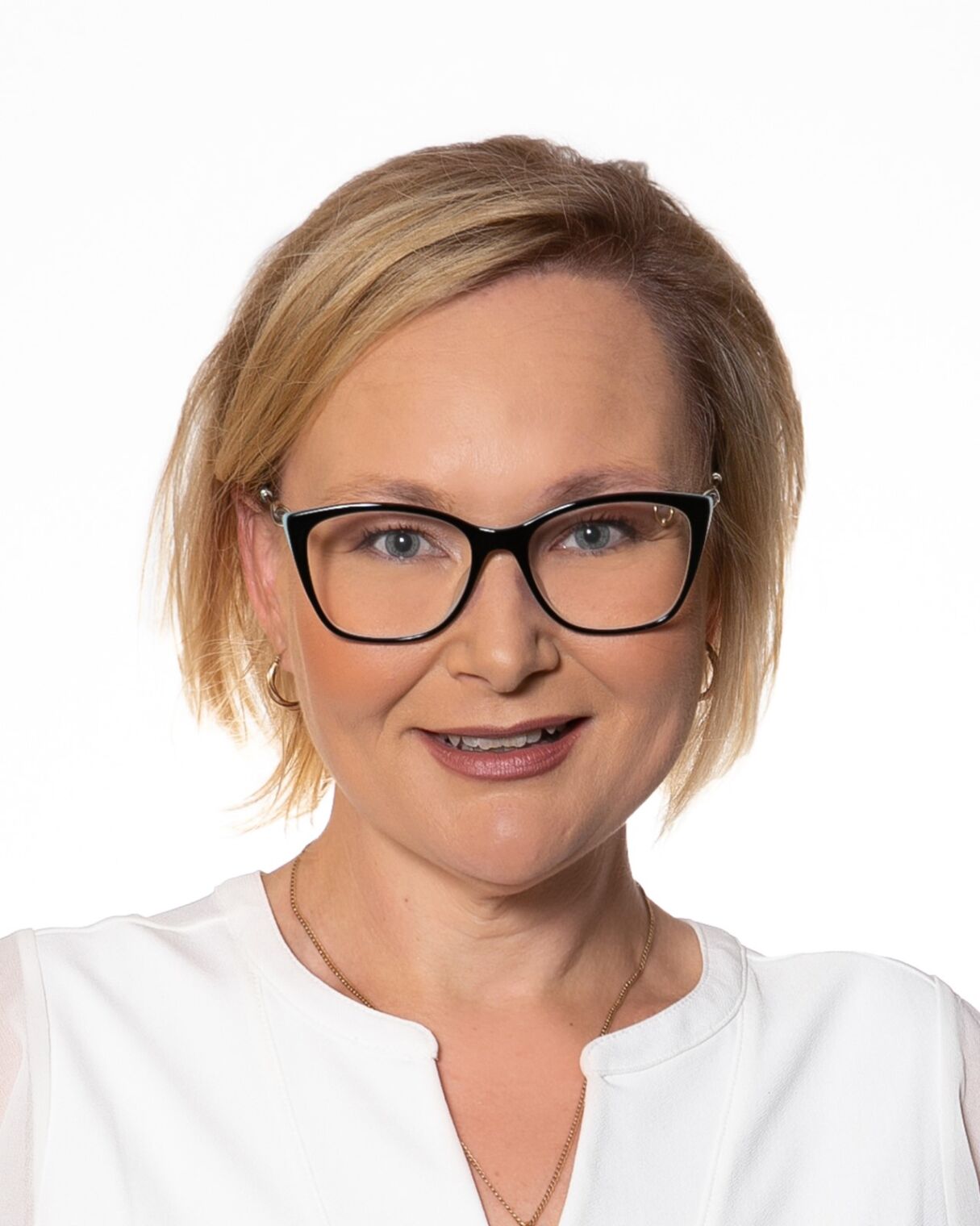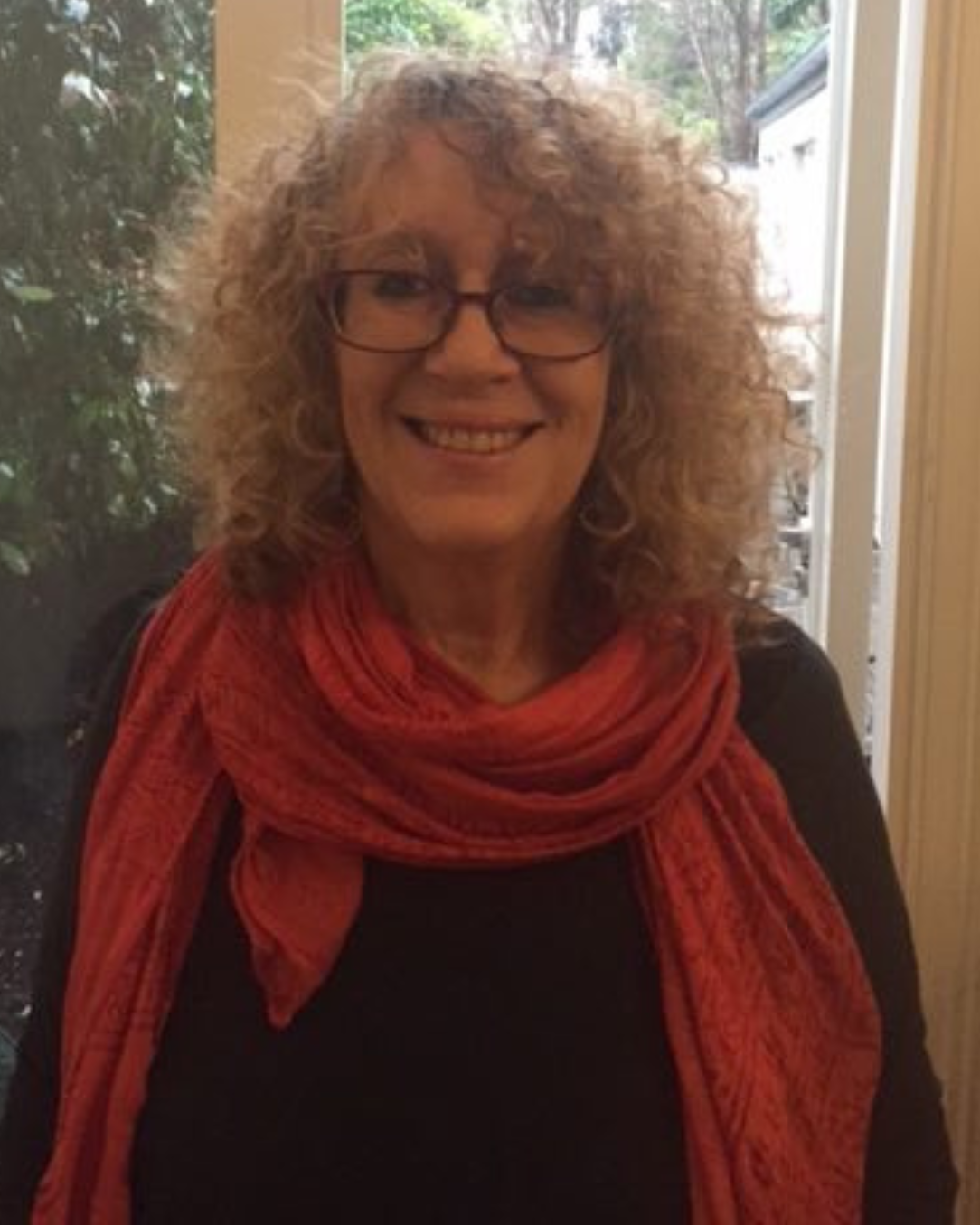You can search for courses, events, people, and anything else.
Being a young person is hard: you’re trying to fit in, and at the same time figure out who you are and where you fit in the world. For Aboriginal and Torres Strait Islander LGBTIQ+ young people, the additional challenges of homophobia, transphobia, and racism within settler colonial Australia, place significant pressure on their social, emotional and cultural wellbeing.
As one young person from New South Wales told Professor Karen Soldatić at Western’s Institute for Culture and Society: "I find being Aboriginal within Australia is its own issue, and being gay within Australia its own issue. But then to be Aboriginal and gay within Australia is like a whole other ball game."*
When Soldatić and the team first began the project in 2018, they quickly realised there really wasn’t much out there in relation to safe and culturally appropriate service design to support the social, emotional and cultural needs of Aboriginal and Torres Strait Islander LGBTIQ+ young people.
Few services across NSW offered comprehensive support for Aboriginal and Torres Strait Islander LGBTIQ+ young people. When the project started, the dominant model of service provision tended to focus on Indigenous health and cultural needs or LGBTIQ+ psycho-social and health needs, but none that really combined those two important elements, "that is, Indigenous young people who were seeking social, emotional and cultural supports that also understood and would celebrate them being both Queer and Indigenous," explains Soldatić’s colleague and project collaborator, Professor Corrinne Sullivan, who is also the Associate Dean of Indigenous Education at the School of Social Sciences at Western.
There were many reasons for this, says Soldatić, but one stood out among the others: "There was limited research available nationally and internationally that explicitly responded to the diverse and nuanced wellbeing needs of Indigenous Queer Young People, so there simply wasn’t a substantial knowledge base to inform service practice when the project first began."
The researchers set about building this knowledge base, working in partnership with NSW Aboriginal community organisations where available, and supporting the development of local initiatives in the area as they emerged across the timescale of the project. For example, in 2019, they partnered with the non-profit, BlaQ Aboriginal Corporation, and the AIDS Council of NSW (ACON) to launch the Dalarinji project.
Need to know
- Young Indigenous LQBTIQ+ people in New South Wales, and elsewhere in Australia, face unique social, emotional, cultural and sexual health needs.
- Service providers are not offering specific, holistic care and support to meet these needs because there is a lack of knowledge and know-how.
- Western research has started to address this knowledge gap, resulting in changes to build a more comprehensive and supportive support system.
"I find being Aboriginal within Australia is its own issue, and being gay within Australia its own issue. But then to be Aboriginal and gay within Australia is like a whole other ball game."
BATTLE ON BOTH FRONTS
"The project couldn’t have been more timely," says BlaQ’s founding director and chair, John Leha. "Without services targeted to their specific, unique needs, Aboriginal and Torres Strait Islander Queer young people don’t necessarily know where to turn to for trusted medical help, such as advice on positive and safe sex. This, in turn, can manifest in issues such as high instances of self-harm, drug, and alcohol abuse, as well as higher rates of HIV," says Leha. "There’s literature to say those types of statistics were the result of sexual racism or service systems’ inability to cater to the needs of First Nations LGBTIQ+ people."
But Dalarinji was a game-changer because it "really highlighted the need for culturally tailored and bespoke responses," he says.
For the project, the team focussed their efforts on New South Wales, partly due to the state having the highest urban density of Indigenous young people in the country. Additionally, NSW has "quite significant localised dynamics that impact the health and well-being of these young people that might not necessarily be in other jurisdictions across Australia," says Soldatić.
Over the course of three years, the team conducted a range of activities, including in-depth interviews, a small community survey, and a series of workshops. These were done hand-in-hand with community researchers from ACON and BlaQ, including Leha, who praised the team’s "understanding of cultural nuances and respect for Aboriginal ways at every stage of the project" and for "really valuing our contributions to the report." This, he says, "really enabled the participants to have confidence in the process."
The guiding principle behind this inclusive approach is Indigenous data sovereignty, which is about "respecting the boundaries between research and community knowledge, and recognising how we can work together in respectful ways to co-produce knowledge that is grounded in community values and delivers the outcomes our community partners, including the young people who were collaborators, are seeking," says Soldatić. "Otherwise, it just becomes research for research."
When analysing the findings, she says it was astounding to learn just how much racism Indigenous Queer young people faced on a daily basis. Of those surveyed, 87.5% reported experiencing racism and/or discrimination, with abuse most commonly experienced online and in the communities they grew up in.
Consequently, young people are afraid to "put their hands up to say 'I’m queer' because of the possibility of bullying and violence," says Soldatić. This means they’re "not getting access to education, health and psycho-social supports and services around sexuality and gender that can keep them safe."
CHANGE IS AFOOT
Reflecting on the outcomes of the Dalarinji project, Sullivan says the work has been "quite fruitful." In addition to the numerous and multi-disciplinary journal articles that have been published, the team has produced a state-wide roadmap to inform future service delivery in the area, two reports for the community, and hosted an international symposium to present the findings.
"I think it was the first time we had worked so closely with community members asking such personal questions. For them to have been so vulnerable really enabled us to have a true understanding of their experiences and what we need to do to help them better," says Leha. Additionally, it was important for young people "to have seen the results of those surveys and how their own experiences contributed to such a document," says Leha.
The reports and roadmaps have also been recognised at a higher level. "We’ve had meetings with the NSW Health Department and a range of different departments about the need to include Indigenous Queer sexuality and gender health and support into their frameworks," says Soldatić.
The NSW Government has now begun to draft their own strategic plan that highlights the importance of taking Indigenous LGBTIQ+ needs into consideration, says Leha, who is an advisor on the project. "It’s clear to us that the work of Dalarinji has been a catalyst."
"We haven’t seen the outcome of policy yet but at least we’ve ensured that we have a seat at the table," says Sullivan. She’s now leading a new project that aims to build on the foundation of what was learnt during Dalarinji, this time seeking to understand the lived experiences of Indigenous LGBTIQ+ people and their social, economic, and cultural needs and aspirations in both the short- and long-term.
The path to greater understanding may be long, she says, but "we’re starting to make inroads."
*Sullivan, C. et al. Dalarinji - 'Your Story': Community Roadmaps (2022)
Meet the Academic | Professor Karen Soldatić
Karen Soldatić is a Professor in the School of Social Sciences and Institute Fellow at the Institute for Culture and Society. She was awarded a Fogarty Foundation Excellence in Education Fellowship for 2006–2009, a British Academy International Fellowship in 2012, a fellowship at The Centre for Human Rights Education at Curtin University (2011–2012), and an Australian Research Council DECRA Fellowship (2016–2019). Her research on global welfare regimes builds on her 20 years of experience as an international (Cambodia, Sri Lanka, Indonesia), national and state-based senior policy analyst, researcher and educator. She obtained her PhD (Distinction) in 2010 from the University of Western Australia. Karen works with a number of international teams examining issues of disability justice in the global south with a particular focus on gender, violence and inequality.
Meet the Academic | Professor Corrinne Sullivan
Corrinne is an Aboriginal scholar from the Wiradjuri Nation in Central-West New South Wales, and a Professor in Geography and Urban Studies in the School of Social Sciences. Corrinne’s knowledges stem from the disciplines of Indigenous Studies and Human Geography, and she utilises both to understand the ways in which Aboriginal and Torres Strait Islander peoples negotiate their social, cultural, and political identities in relation to place-based and spatial dynamics. Her research areas include Indigenous LGBTIQ+ people’s social and emotional wellbeing; Indigenous peoples and urban spaces; Indigenous communities and organisations; Indigenous education; and gender and sexuality studies. Her research has made significant and timely contributions to government policy, institutional practice, and community-based services and resources, with vision to improve the social, economic, mental, physical, and cultural wellbeing of Indigenous people through centring and amplifying their voices to promote positive change. The key objective of her research agenda is meaningful engagement with Indigenous communities and organisations to develop appropriate and impactful resourcing that can contribute toward building safe, inclusive, and sustainable communities.
Meet the Academic | Professor Linda Briskman
Linda Briskman holds the Margaret Whitlam Chair of Social Work at Western Sydney University. She is a long-standing human rights scholar and activist in the areas of Indigenous rights, the rights of people seeking asylum and anti-racism, and publishes extensively in these areas including twelve books. She collaborates with Australian and international universities, as well as community groups. She has won awards for her work including the Australian Human Rights Commission award for Literature (non-fiction). Her previous appointments include Haruhisa Handa Chair of Human Rights Education at Curtin University and Professor of Human Rights at Swinburne University.
Meet the Academic | Dr Kim Spurway
Credit
Future-Makers is published for Western Sydney University by Nature Research Custom Media, part of Springer Nature.
© Krofoto/Shutterstock
© Vincent_Nguyen/Shutterstock

